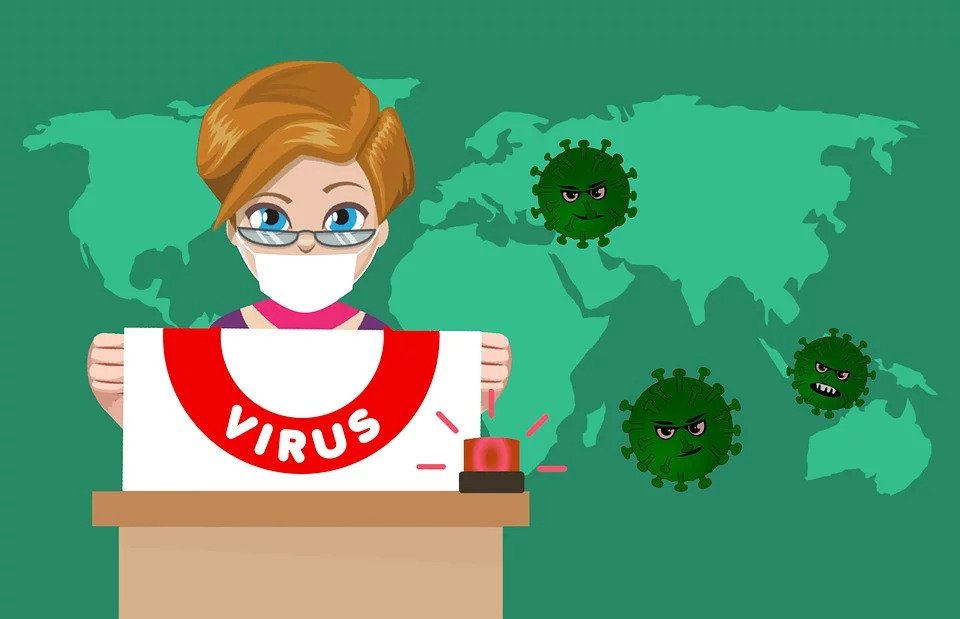How to deal with children during the Coronavirus lockdown?
They may have many questions. Probably, they are scared but are not able to put their fears into words. So, what should you tell your children about Coronavirus?


“These days, all of us are very worried about illness and death. Children are no exception. They worry about themselves, and they worry for their caretakers too. And that’s because they have a grasp of their dependence and vulnerability,” said Amna Singh, who works in Mumbai as a content partnership manager and is a mother of two young children.
“We are trying to have frank discussions at home pertaining to Coronavirus and not trivializing the problem or their fears. We are trying to communicate all age-appropriate verified facts. And, yet, there is so much they are just not able to articulate or share,” she added.
By now, your children, irrespective of their age, have heard about Coronavirus. They may have many questions. Probably, they are scared but are not able to put their fears into words. So, what should parents tell their children about Coronavirus and how much? What impact is the disease having on children?
To understand this, we spoke to clinical psychologists, psychiatrists, counsellors, parents, teachers and, of course, children.
“Control your anxiety”
“We are watching a lot of news these days. But too much information can make one anxious and parents may unknowingly pass on this anxiety to their children,” said Param Shukla, a clinical psychologist and counsellor based in Ahmedabad. “Parents should talk to their children and not keep them in the dark because, in today’s age and time, information will reach them. It will be better if parents address this issue in an age-appropriate manner,” he added.
Dr Lam Ho Bun from the department of psychiatry at the Chinese University of Hong Kong, who co-authored a study after the SARS pandemic in 2003, observed that two mental disorders are common after an outbreak — depression and post-traumatic stress disorder (PTSD), and children are not insulated from these.
“Children are watching you. At this point in time, they are not listening to your instructions, they will behave depending on how you behave or act. In such situations, it matters to them what you are saying, doing and how you are behaving. So, watch your actions and behaviour. For slightly older children, it is an opportunity to learn how to react to problems and how to deal with anxiety, panic, frustration, fear and restlessness. They will learn that there are problems that are beyond our control,” said Shyam Mithiya, a psychiatrist based in Mumbai.

Coronavirus is novel for parents, too
It’s a challenge for many parents to make their children understand the seriousness of the disease, to give them instructions, to ask them to wash their hands again and again, to not touch things, to cover their mouth while coughing … there is an overdose of instructions.
“These kids are aware. They know they shouldn’t be touching anything, so they take the staircase and not the lift. But they are also fed up now because people around them are constantly talking about it. ‘Don’t panic, but stay alert’, this is what my daughter Divmeher, 9, actually said one day!” said Tanveer Kaur, a resident of Delhi.
Some children are suddenly wondering why they can’t just go down and play.
“When I told the kids they can’t play outside, they were very upset. So, we agreed to reduce the play time and not stop it completely. They are to play with precautions like wearing masks, coming home to wash hands periodically and not going to each other’s houses, not sharing bottles, etc,” said Prachi Jawadekar, a Kathak teacher and communications professional, who lives in Mumbai.
Some parents feel that too much information is making their children anxious.
“I stopped my kids from going down and playing in the park. But then I realised that in a bid to protect them, I was making them anxious. My son, Purav, 8, would talk about Coronavirus at night just before going to bed. He felt that everyone around him can pass on the virus to him. Just two days back, I sat with him and explained to him how exactly it spreads and that even if someone contracts the virus, that person is not going to die,” said Pooja Adlakha, a resident of Delhi, and a mother of two.

Talking at an age-appropriate level is the key
Almost all the professionals we spoke to for the story suggested it’s important to talk to your children and to pass on relevant information depending on how old the kids are. But it’s a challenge for parents of toddlers.
“There is too much information floating around. My twins are six-year-old and my son falls sick often due to his low immunity. So, as a parent, I am obviously worried. My kids know about Coronavirus and what precautions they are supposed to take, but, as parents, we don’t discuss or watch anything in front of them that might scare them,” said Priyanka Solanki, a resident of Gurgaon.
It’s natural for the kids to be curious.
“My five-year-old son keeps asking about Coronavirus and if it comes from bats. When someone sneezes, he thinks that person has Coronavirus,” said Swagata Shrivastava, a faculty with the National Institute of Design in Ahmedabad and a mother of two.
There are parents who patiently answer many questions their children ask, and, on the other hand, there are parents who are figuring out how to tell their children why they can’t go to school.
“My two-and-a-half-year-old son had around one month of pre-school left. But he has been home since February 15. He was happy for three days, but then he started asking about school and when he could meet his best friend. He had a set routine then; now it’s completely haywire,” said Ashwini Nair, a journalist, who lives in Mumbai.
She added: “As a parent of a toddler, it’s difficult to deal with the current situation. For how long can we engage them in craft, drawing and toys? They can’t go out. There is a lot of energy in them that manifests in scarier ways. My son has started climbing furniture! He didn’t have a mobile habit, but I’m afraid he is going to be addicted to it by the time this will settle.”
“Maybe, some alien is going to come”
All the professionals we spoke to said children understand and they follow instructions, but in their own way. Six-year-old Vedant Solanki from Delhi said: “I want to go to school and play with my friends. Their fathers are at home playing with them, but my father goes to office every day. I feel something is going to happen, something big. I don’t know what is happening. Maybe some alien is going to come or maybe some dinosaurs will attack us. I am becoming strong like Chota Bheem. I will kill all the monsters.”
His twin sister, Vihana Solanki, said: “Coronavirus is a very bad virus. We fall very sick, so we must avoid going out. We are not going to school because we don’t want to fall sick. We get bored at home, but we feel it’s safe here.”
The opinions of slightly older children were profound. Eight-year-old Saina Rawat from Ahmedabad, for example, said: “It seems to be a problem of the rich and not the poor as poor people don’t have people coming from abroad and bringing the virus along with them.”
Maithili Pandya, who studies in the seventh grade in a school in Toronto, Canada, is worried about depopulation. “Many people are dying and some countries may have to deal with depopulation, but in a negative way,” she said.

“It may lead to depression among children”
There are children who are getting affected. They are frightened and don’t fully understand the situation as they are not being let out. They don’t know what to do with themselves. It’s a sad and depressing situation for parents and children. Parents are also figuring out what to do as they think the only solution is to lock children up. We are expecting a lot of calls from parents and we will tell them how they can deal with the situation,” said Shilpa Shah Venkatesh, a counsellor associated with a helpline number floated by Project Mumbai, an NGO based in Mumbai.
She added: “If this continues for long, then symptoms of depression might start showing among children because they are not accustomed to living like this. Slightly older children whose exams have been indefinitely postponed are stressed, too, because they don’t know what will happen next. There is no surety about anything.”
It took Krishna Engineer, a music teacher with Kendriya Vidyalaya, Ahmedabad, a lot of effort to make her daughter, a class 3 student, understand why they can’t go ahead with her birthday party they had planned. There were plans to invite friends and take all of them out for dinner, but that had to be cancelled.
“I know she is hurt, but nothing could be done. My daughter has been home ever since her exams got over. Since they don’t have a routine, it’s very difficult to keep them engaged. They are already tired of watching TV or playing indoor games. They are cranky because going out is not an option. Children are full of energy and it’s difficult to confine them to a limited space,” she said.
How to make the most of the lockdown?
“If you are going to tell them let’s revise Math or English in such a situation, they are not going to listen. Most parents have internet at home. Parents should engage their kids in activities that are fun and, at the same time, informative,” said Engineer.
Shalini Anant, a clinical psychologist in Mumbai, feels that as they are getting to spend a lot of time together, this is a good opportunity for parents to teach their children different skills depending on their age.
“Children can be taught how to do their wardrobe or how to clean their drawers. They need to be taught some basic cooking. Young children can be taught to make salads or sandwiches. Slightly older children can be taught to make basic things. Parents should involve children in day-to-day activities. They should play fun games with their children. All such activities release anxiety and shield both the parents and children from constant inflow of news,” she said.

